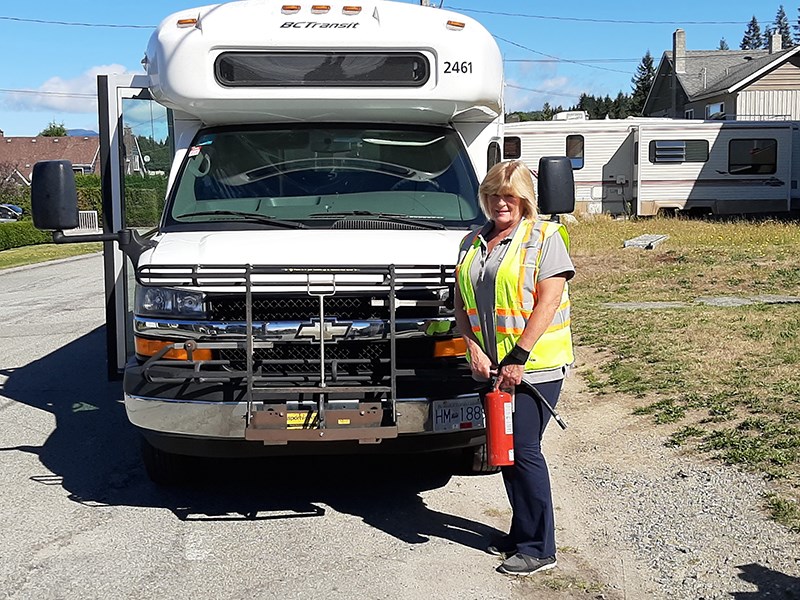qathet Regional District’s (qRD) board of directors will consider approving and adopting the 2022 to 2023 BC Transit annual operating agreement and budget, which would amount to $138,000 if approved.
Rob Ringma, senior manager, government relations, with BC Transit, appeared before the May 12 committee of the whole to outline qRD’s agreement.
Ringma told regional directors that after the lows in 2020 with the onset of COVID-19, ridership numbers are coming back slowly but steadily.
“We are currently around 70 per cent of the pre-COVID-19 levels across the province, so we still have some work to do,” said Ringma. “The Powell River and rural systems are pretty much following the same pattern as the rest of the province.
“BC Transit has made it our mission this year to do everything we can to regain that ridership. Clearly, that’s important because it delivers some of the revenue that helps offset your costs for transit.”
Ringma said in the region’s transit system, BC Transit will be launching its next ride and smart bus technology.
“What we are doing is putting automatic vehicle locators on all of our buses and that will allow for real-time planning,” added Ringma. “By having those automatic vehicle locators, we’ll be able to track those buses in real-time. We’ll be able to communicate back to our customers through Google Maps or an application like the transit app.
“Basically, you can be standing on the street and the system will tell you exactly where the buses are, whether they are on time or running behind. It will move us to the digital age where we can provide an additional service to our customers.”
Ringma said there will also be electronic fare capability. BC Transit will move to open payment technology, so debit cards, credit cards and a mobile application will be usable to purchase fares. Cash will still be an option.
Ringma outlined digital on-demand service, which allows transit customers to request services to a specific area using a smartphone.
“Digital on-demand gives operators the ability to alter routes rather than following a fixed-route schedule,” said Ringma. “BC Transit has been looking at this and doing quite a bit of work over the last year. We had consultants recently finish a feasibility study on digital on-demand as a solution option.
“We are looking to launch in one or two pilot communities to test the service. We want to run those for at least a year to get a better understanding of performance and capability. I have been working with our internal team in the launching of the pilot communities and definitely mentioned that Powell River looks like a viable candidate.”
Operating agreement
In terms of the operating agreement, Ringma said revenue in 2022 to 2023 had been adjusted upward but it’s still lower than pre-COVID-19 ridership. The difference in operating costs between 2021 to 2022 and 2022 to 2023 have been forecast to increase by $56,000. He said these are due to increased service hours, expansion to Lund, cost of fuel and upgrading to electronic fare collection.
To help offset operating costs, BC Transit received a safe restart grant of $12,590, which can be used to help defray costs, bringing the total net municipal share to $138,000 to operate the system this year in the regional district. BC Transit would pick up the additional $176,895.
Electoral Area D director and committee chair Sandy McCormick asked whether the digital on-demand pilot, if located in this area, would only be in City of Powell River or include the entire qathet region.
Ringma said there is quite a bit of demand for the pilot project. He said he has put in for Powell River and the rural paratransit system.
“The key piece is finding the right way to line up digital on-demand with conventional transit,” he added. “There are nuggets of gold where digital on-demand can help the entire transit ecosystem to operate better. I’ve put that all forward to BC Transit and have my fingers crossed to see what comes out the other end.”
The committee carried a motion to recommend the regional board approve and adopt the 2022 to 2023 BC Transit annual operating agreement and budget, and that the board authorize the execution of documents related to this matter.




